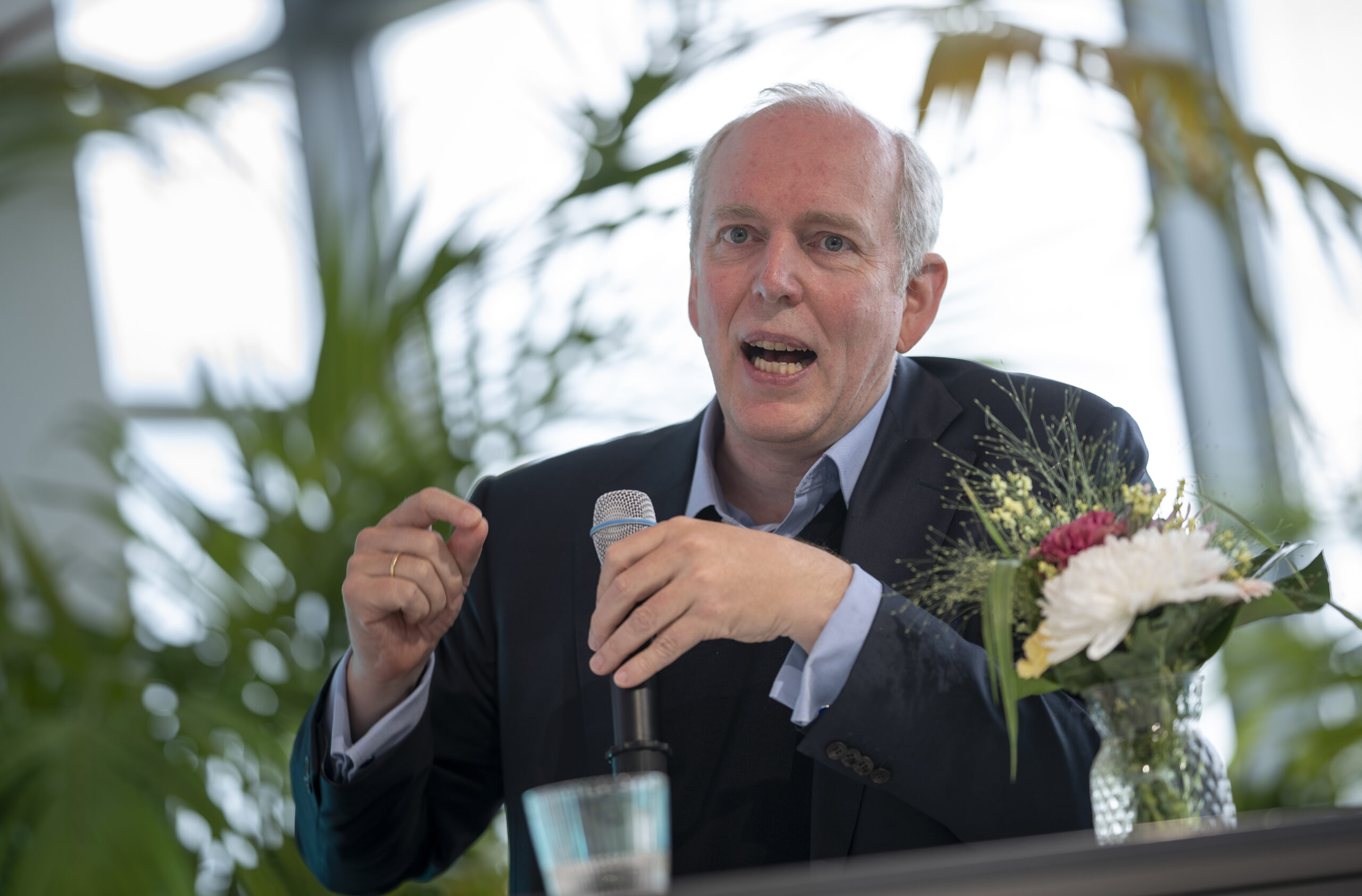INNOVATION LAB
Well-being at the Heart of Policy Indicators and Implementation
Which indicators beyond GDP are suitable to guide policy makers towards a more socially inclusive economy which respects planetary boundaries? This was one of the central questions at our symposium on Prosperity in the 21st Century.
BY
MAREN BUCHHOLTZPUBLISHED
2. SEPTEMBER 2021READING TIME
3 MIN
In the first session of our Symposium on Prosperity in the 21st Century, organized in cooperation with The New Institute, Dr. Nicola Brandt and Lara Fleischer from the OECD provided insights into best practices for measuring prosperity beyond GDP from around the OECD. Currently, around half the organization’s membership measures wellbeing, either led by government ministries or statistical offices.
The researchers presented four different approaches in implementing wellbeing policies: vision setting (e.g., through National Development Strategies and the UN SDGs), shaping budget decisions (e.g., the “Wellbeing Budget” in New Zealand), setting up new institutional structures (e.g., the British “What Works Centre for Wellbeing”) and accountability mechanisms (e.g., the Welsh “Future Generations Commissioner”). One of the important lessons learnt was that creating legislation and involving parliaments as well as citizens can provide accountability in the implementation process. Another point was that leadership by the central government can help to avoid silos. However, there is no “one size fits all” answer and open questions remain, such as why, in the case of Germany, the initiative “Gut leben in Deutschland” has not been fully integrated into policy yet.

Dr. Katherine Trebeck (WEALL) advocated for a reimagination of the economy. She argued that aiming for green or sustainable growth, i.e., the approach of „putting nice adjectives on growth” was not commensurate in addressing the social and ecological challenges of our time. We also needed to move away from an old social-democratic idea of economic justice and redistribution which still relies on growth. Instead, we should reflect on the purpose of the economy. Among those should be the principles of fairness, dignity, redistribution, prevention (of social and ecological damages), respecting the planetary boundaries and global justice. In her view, GDP sets perverse incentives, which is why alternative measures need to take intuitive sense for the population to be able to hold their politicians to account.
Prof. Dr. Sebastian Dullien (IMK) presented the concept of the “new magic rectangle of economic policy” (das Neue Magische Viereck der Wirtschaftspolitik), which encompasses social, ecological, financial sustainability besides GDP. He acknowledged that this concept has not been taken up by policy makers in a decisive manner yet.
Prof. Dr. Dennis Snower (THE NEW INSTITUTE) introduced his “SAGE” approach on holistic wellbeing as the sum of four aspects: solidarity (S), agency (A), material gain (G) and environmental sustainability (E). In an analysis of over 150 countries, he found that GDP did not move in line with the three other concepts.
From a practitioner’s point of view, Jakob von Weizsäcker (BMF) pointed out that the goal must be to strike a balance between input and output indicators. It is true that material prosperity is the basis for social progress and certain forms of solidarity. The shortcomings of GDP as a measure are well known. Therefore, it should not be over-interpreted, but it could not be completely dispensed with either. He advocated an approach of “beyond GDP and not instead of GDP”. With the increasing number and complexity of indicators (e.g. the 17 UN SDGs and their 169 sub-goals), there is a danger that they can no longer be communicated to the population.
